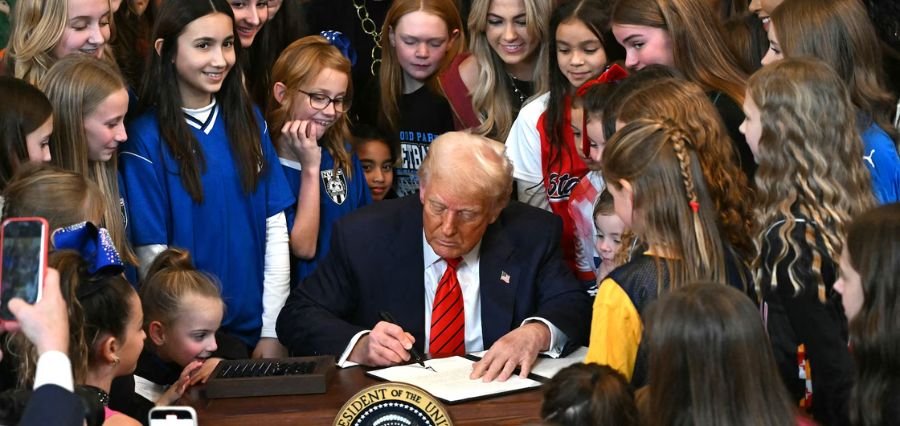Prime Highlights
- USCIS renews immigration policy to reject visas for male competitors:
- Regulation update upholds Executive Order 14201 on fairness and protection in sports.
Key Fact
- Competitors who have a record of competing against women are less likely to be eligible for exceptional ability visas.
- Job offers and work certifications due to women’s sporting competitions can also be denied.
Key Background
In an Aug. 11, 2025, act of determination, U.S. Citizenship and Immigration Services (USCIS) issued a new immigration policy intended to exclude male athletes from competition in women’s sports in the United States. The action follows Executive Order 14201, “Keeping Men Out of Women’s Sports,” signed this year. Male competition in women’s competitions degrades fairness, safety, and the purpose of Title IX protections, the order said.
Under this policy, USCIS will consider applications by male competitors who wish to enter in order to compete in the women’s classes as undesirable. Those already having competed against women will no longer meet being in the “small percentage at the very top of the field,” required for many visa classes. Visa classes encompassed are O-1A for aliens of extraordinary ability, E-11 and E-21 for aliens of exceptional or extraordinary ability, and national interest waivers. The revision also affects job offers and labor certifications, which can be denied if the job is competing in a women’s competition.
The agency insisted that the rule was to keep women’s sports fair and competitively biologic. USCIS officials explained that foreign male athletes do not deserve to take advantage of immigration channels in order to compete in women’s divisions. The change essentially closes what they described as a loophole in the visa system earlier in order to allow such competition.
This is part of a wider attempt to reestablish policies for the designation of “female” on the basis of biological sex in sport. This is at a time of increased national debate about whether transgender people ought to be allowed in sport, specifically elite and professional sport. The administration has framed this both as a question of justice to women’s sport and as protecting women’s competitive sport integrity.
read also: The 10 Most Powerful Women in Law Making an Impact in 2025




